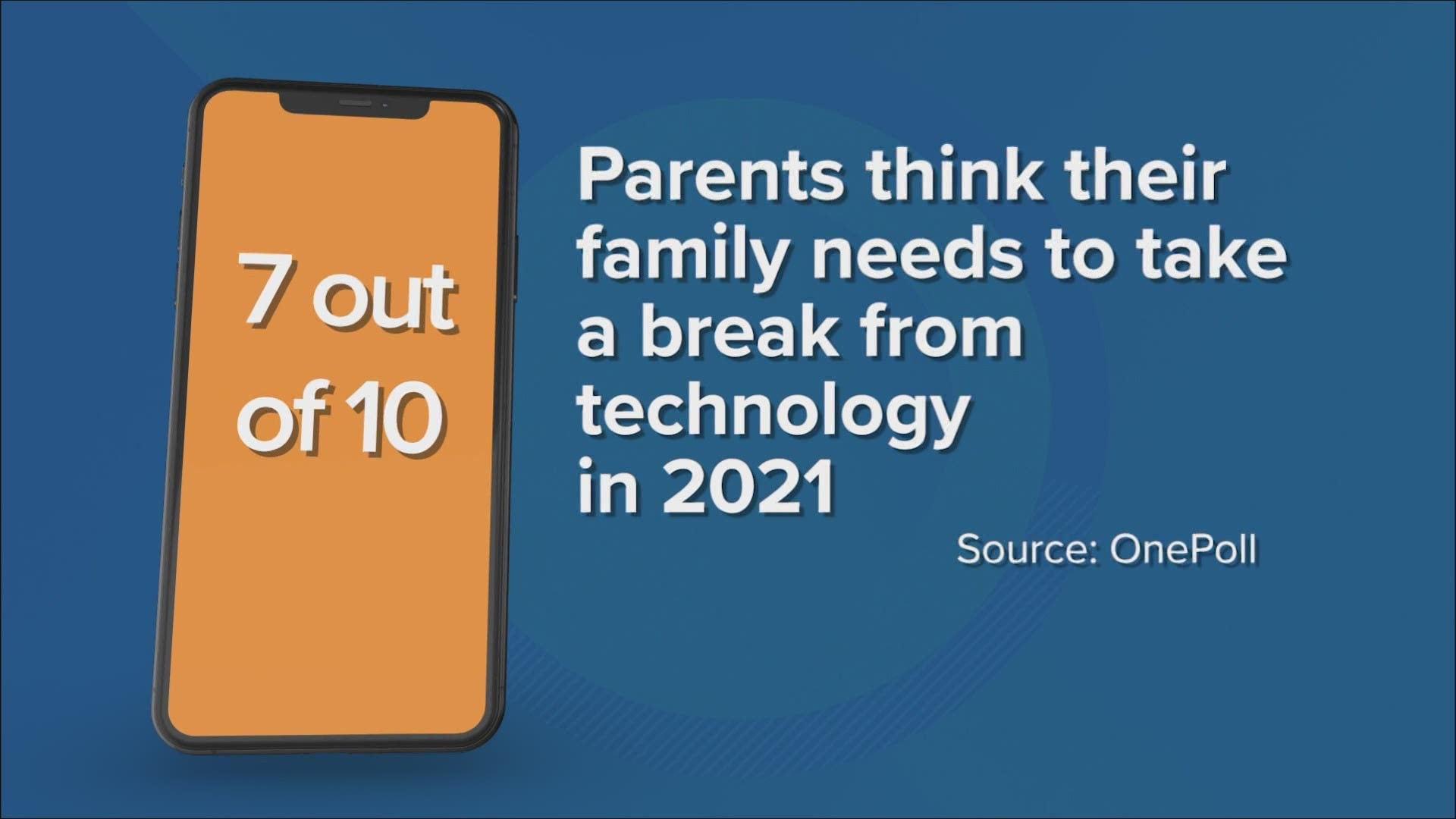Screen time has always been an issue in my house. And since the pandemic started, use of our digital devices among myself, my wife and kids has soared.
It turns out we're not alone. One study estimates that since COVID-19, screen time has increased for some families more than 500%. Five hundred percent!
Maybe it's time for a digital detox.
Dr. Brad Schwall from the Center for Integrative Counseling and Psychology reminds parents that screen time and devices aren't inherently dangerous. But when their use bleeds over into family time or other positive behaviors, parents should be aware.
"You know you need a digital detox when you never talk to your kids," he explained. "When you never see their eyes, all you see is the top of their head."
Many parents can relate to that. In fact, a study by polling organization OnePoll found that 8 out of 10 parents believe having their kids take a break from technology can vastly improve their mental and emotional health. Perhaps unsurprising, given that 64% of parents said their kid is noticeably more irritable after spending an entire day looking at screens.
That seems inevitable in a world filled with screens. And given how many kids are learning remotely, they often don't have a choice. Schwall explained that means parents have to be more diligent than ever in paying attention to how that time affects the rest of the day.
"Not all screen time is created equal," he said. "There are necessary good aspects to screen time. But the issue is when it moves over and moves out good quality time with each other and good interaction."
So what are the tell-tale signs of that?
"If we're seeing at mealtime that everyone is on their screens, kids aren't getting outside exercise, that's when we know a detox might be necessary," Schwall explained.
To combat overuse of devices, he recommends parents start slowly.
Going cold turkey is likely to result in a backlash that won't be productive for kids or parents. And the clock can be your friend. Whether that means setting hard limits on overall use or setting a time of day when everything is switched off, the clock can be the impartial enforcer of when it's time to put down the tablet or set aside the phone.
Schwall also encourages parents to be honest about their own use, a reminder I can certainly take to heart. It's not just kids who can struggle with the allure of a bright screen.
"As parents, we do need to look in the mirror and recognize when we're distracted, when we have that notification that takes our attention from our kids," he said. "Practice what we preach is key, and that's good for our own health too."

